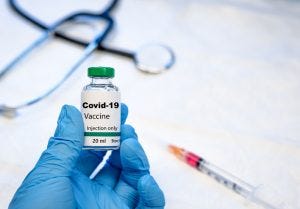Content Spotlight
Podcast: MilliporeSigma says education vital to creating unbreakable chain for sustainability
MilliporeSigma discusses the importance of people, education, and the benefits of embracing discomfort to bolster sustainability efforts.
May 22, 2020

Cytiva will help Japan’s Takara Bio prepare manufacturing processes for a DNA-based SARS-CoV-2 vaccine candidate.
Cytiva announced the collaboration this week, explaining it will work with Takara and partners Osaka University and AnGes to develop production processes and technology for the vaccine.
Stephane Perrey, general manager for Cytiva in Japan, Australia, and New Zealand, told us “Cytiva is providing process design consultation, prioritization of equipment manufacturing and prioritization of consumables manufacturing.

Image: iStock/Manjurul
“We worked closely with Takara Bio to help them find ways to accelerate their plan. The usual practice is linear where each step is based on the results of the previous one. Here, we needed to have work done in parallel to maximize manufacturing capacity.”
The vaccine consists of a DNA plasmid that encodes the spike protein of the SARS-CoV-2 virus – which causes COVID-19.
Ryuichi Morishita, professor at Osaka University, who designed the plasmid DNA, said: “Beyond the potential clinical benefit of the vaccine, plasmid DNA allows faster response in case of outbreak of an infectious disease.”
This was echoed by Cytiva who said plasmid DNA can be biomanufactured in large quantities relatively quickly, allowing nimble ramp up of production.
According to Nikkei Asia Review, clinical trials of the Takara vaccine are due to start next month.
Cytiva – which was previously part of GE Healthcare Life Sciences – is already working with another SARS-CoV-2 vaccine developer.
Perrey told us “Cytiva is partnering with the University of Queensland to support manufacture of another candidate vaccine,” adding: “We are also supporting many of our customers for diagnostics solutions.”
The firm is providing manufacturing support and technology to the Queensland University program, including supporting the making of clinical trial phase I vaccine at the Commonwealth Scientific and Industrial Research Organisation (CSIRO), an Australian government scientific research group.
It also plans to create a prototype affinity resin for vaccine purification at its site in Uppsala and support scale up with planning underway for phase II material manufacturing through Locke Drive, Marlborough facility.
More broadly, Cytiva has seen demand for processing technologies increase as a result of the surge in COVID-19 vaccine development.
Perrey told us “Demand is high,” adding “we have a strong security of supply system where we are able to prioritize meeting customer needs.”
Correction: The version of this story that appeared on the newsletter misspelt the name of Takara Bio
You May Also Like